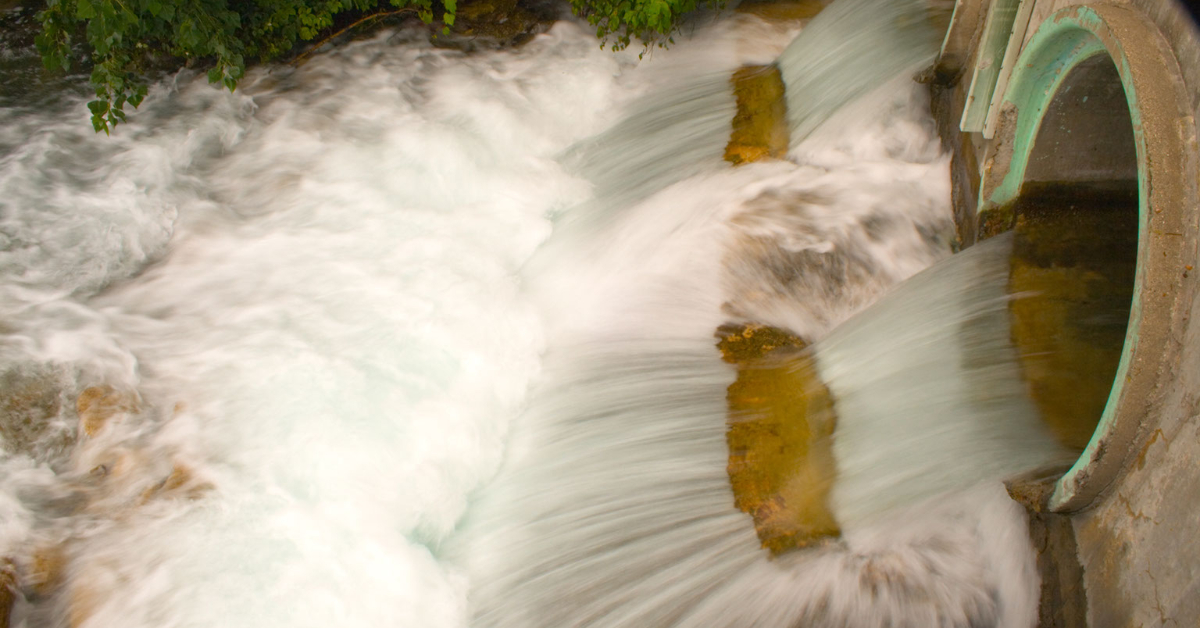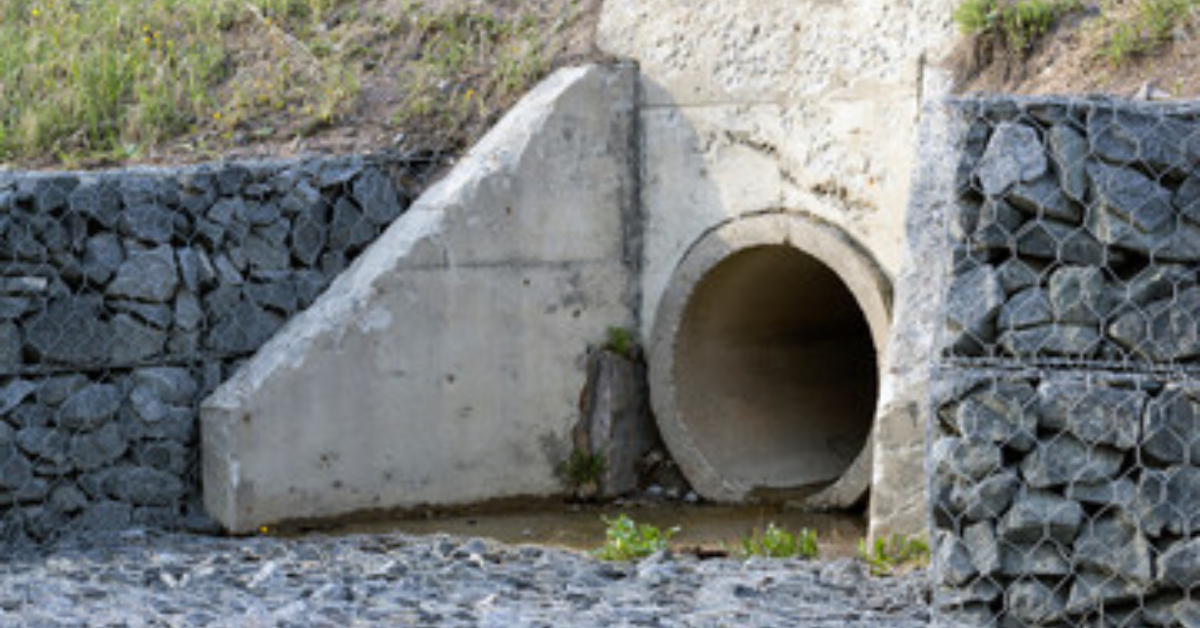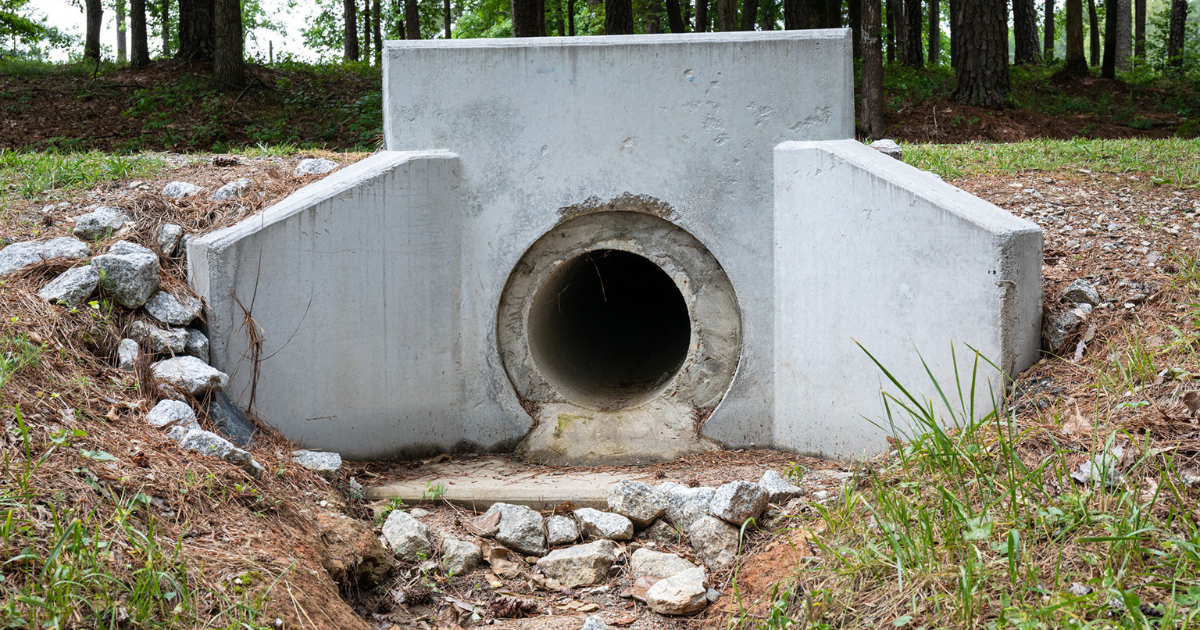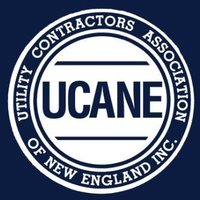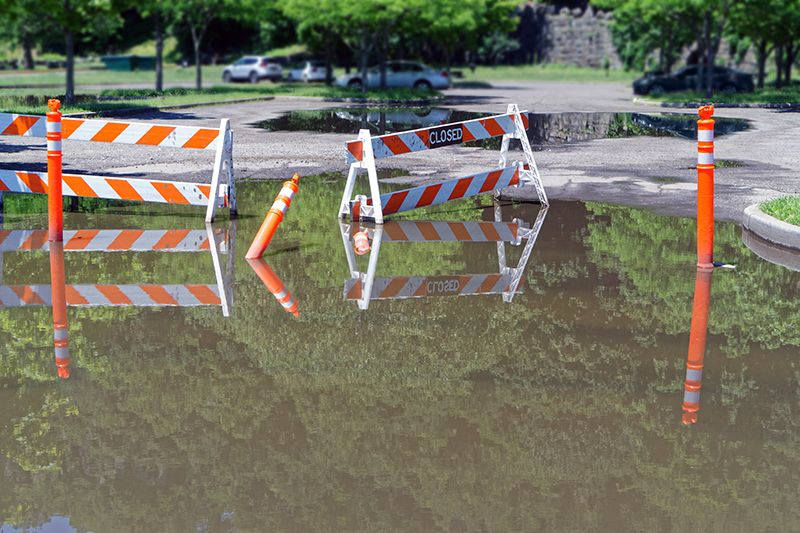
If you own a piece of real estate in the Commonwealth of Massachusetts that has a culvert located on it, than you are responsible for ensuring that it is properly maintained on a regular basis. Otherwise you are taking the unnecessary risk of causing a flood on your property or in your neighborhood. If you are a town or city manager in the Commonwealth of Massachusetts than you are responsible for ensuring that all of the culverts located in your city or town are properly maintained on a regular basis. Otherwise you are taking the unnecessary risk of causing a flood, or multiple floods within your municipality.
This is due to the fact that when culverts become clogged up with sticks, rocks, garbage, and other debris it impedes the flow of water through them. When that water is impeded it can back up and flood the surround area. Think of it like this. When a sewage pipe becomes clogged it slows the flow of sewage through that pipe. Eventually the sewage water and solids will completely stop flowing through that pipe. When that happens the raw sewage will begin to back up until it flows out of the pipe in the opposite direction until it flows up and out of the toilets, sink drains, and shower drains.
Culverts are basically large pipes that are designed to allow water to flow under roads, railroad tracks, and trails. In essence, the culvert acts as a tunnel for the water so that it can travel without ruining any infrastructure. Typically speaking, culverts are surrounded by soil and set in the ground. They are manufactured out of heavy-duty plastic pipe, reinforced concrete, corrugated steel and other materials. The bottom line is that culverts provide a place for excessive amounts of water to collect and to enter into major drain systems.
Culvert maintenance is incredibly important due to the fact that it can cause a great deal of damage to our roads and surrounding areas when they are neglected. For example, culverts can easily fill with both natural debris and man-made debris such as weeds, grass, and garbage during the spring and summer months. Culverts become filled with leaves, silt, sticks, and trash during the fall and winter months. All of these natural debris and man-made debris tend to significantly reduce the flow of stormwater, and snowmelt runoff, which leads to severe water drainage problems.
Of course, sewer water drainage problems typically lead to flooding in the surrounding areas of the culvert, which certainly is bad news. The good news is that this can be prevented with proper culvert maintenance every six (6) months.
If you have any questions about our culvert maintenance services in New England, or would like to schedule service we are happy to help. Jolin Paving & Excavating, Inc. is your New England connection for a vast variety of environmentally related services. Our company has been serving Boston Massachusetts, Southern NH, VT & ME as well as Northern CT & RI since 1952. Please Contact us to learn more today. Environmental related issues occur all of the time, and can strike at any time. That is exactly why you need to have a local and reliable environmental services company at the helm and ready to go whenever you actually need them.
continue reading

